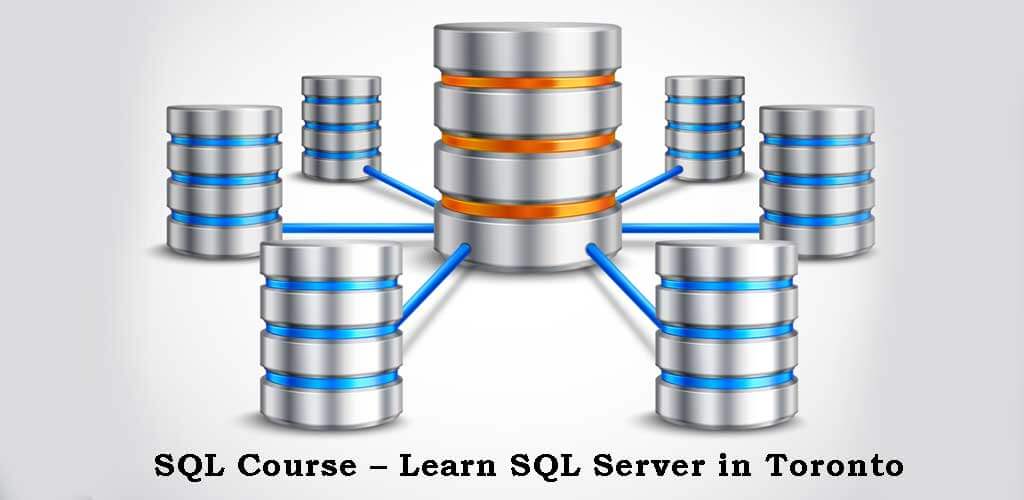SQL Server Training

Our SQL Server Training includes SQL, SQL Server, SQL Programming and Database Development. The SQL Server Training includes presentations, demos and hands-on lab. Our Certified Software Testing Trainers will teach you in this SQL Course, how to create and maintain Microsoft SQL Server Database. In our SQL Server Training you can learn SQL , create tables , queries and all SQL procedures. We will teach you in-depth knowledge of SQL database which is mainly useful for software testers. Check out the various other courses we offer like our BA Training, Online QA Course, Selenium Training and SoapUI Testing Training.
Students who complete SQL Server training will be equipped with the knowledge and abilities needed to design and develop a SQL Server database. The course focuses on the key capabilities and database development tools of SQL Server. You’ll learn how to use SELECT statements, SQL queries, indexes, triggers, transaction types, and more to modify tables using T-SQL. This course covers every subject you need to know to improve your programming abilities and pass the SQL Server certification exam.
Note: The other fundamental abilities listed below will strengthen your CV and make it easier for you to land Salesforce jobs.
- Scrum and Agile Methodologies
Why Learn SQL
SQL or structured query language is a primary language and it is used to interact with databases. Combining two data documents and identify the specific data can be more time consuming and tough task. Using SQL queries we can easily identify the data. With SQL server there is more support for database.
In our SQL Server Course you can learn SQL server with advanced concepts. Our SQL Server Course is a practical based course which includes theory, practical examples as well as presentation. You can easily practice whatever you will learn in each and every section of SQL Server training. We have a 24×7 remote lab available for you to practice what you learn in entire SQL Server Course.
We offer a unique ‘1 week free’ trial SQL Server Course class, so you are welcome to try the class before you decide to enroll.
Why Learn SQL - Importance of SQL Server Training
- Understand the application better
- Understand the HLD/LLD documents(SDD)
- Better test cases/test execution/verification of test results – System/UAT
- Test Data preparation
- Inserting data into the databases manually using SQL queries
- Requesting Production Cut
- Access Control & Authentication
SQL Server Training Syllabus
Intro to databases
What are databases?
What are RDBMS?
What is SQL
Data Types in SQL
Writing SQL Queries
SQL Joins
SQL queries with conditions
How to include SQL into testing
Referential Integrity – primary key, foreign key
Creating databases, inserting, deleting data into tables
Lab includes installing SQL Server Express 2014 and practice exercises as homework every day.
SQL Server Training Lab Sessions
Executing Basic SELECT Statements
Executing queries which filter data using predicates
Executing queries which sort data using ORDER BY
Write simple SELECT Statements
Eliminate Duplicates Using Distinct
Use Table and Column Aliases
Use a Simple CASE Expression
Writing Queries that use multiple table Joins – inner, outer, self and cross joins
Writing queries that filter data using a WHERE clause
Writing queries that filter data using an ORDER BY clause
Writing queries that filter data using the TOP option
Writing queries that filter data using the Subqueries
Designing Tables
Working with Schemas
Creating and Altering Tables & Views
Create constraints and indexes
Writing queries that use date and time functions
Writing queries that use character functions
Writing queries with data type conversions
Write queries which use conversion functions
Write queries which use logical functions
Write queries which test for NULLABILITY
Write queries which use the GROUP BY clause
Write queries which use aggregate functions
Write queries which use distinct aggregate functions
Write queries which filter groups with the HAVING clause
Write queries which use self-contained Subqueries
Write queries which use scalar and multi-result Subqueries
Write queries which use correlated Subqueries and EXISTS predicate
Write queries which use Views
Write queries which use derived Tables
Write queries which use Common Table Expressions
Write queries which use Inline Table-Valued Functions
Write queries which use UNION set operators and UNION ALL multi-set operators
Write queries which use CROSS APPLY and OUTER APPLY operators
Write queries which use EXCEPT and INTERSECT operators
Viewing Query Execution Plans
Viewing Index Usage and Using SET STATISTICS Statements
SQL Server specialist career path in the IT industry
The cornerstone of any data analysis project is SQL. We need SQL for data cleansing and maintenance as well as exploratory analysis. Due to the exponential growth in data output, there is a huge demand for SQL experts. Successful SQL career paths will include data science, engineering, business intelligence specialists, and SQL Server database administration and development. The demand for DBAs is the highest of any SQL professional roles.
Eligibility
There aren’t many requirements before learning SQL Server Training Course. You can start learning SQL if you have a fundamental understanding of RDBMS and an interest in it. The language of SQL is easy and basic. Its structure typically includes English statements. Additionally, SQL can be learned for free.
Why choose Get Software Services for your Online SQL Server Course?
You may be aware that Microsoft SQL Server is one of the most widely used relational databases in the computer industry, along with Oracle and MySQL. It is especially common in businesses that employ Microsoft technology, such Windows Server, such as Investment Banks, Insurance Companies, and other sizable corporations.
There is a significant likelihood that demand for Microsoft SQL Server will rise along with Microsoft Azure’s popularity and market share, especially in the cloud. It is a wise choice to learn MSSQL in 2022 because there is already a significant demand for both Microsoft SQL Server DBAs and programmers with SQL Server knowledge.
What will you accomplish after completion of the course?
There are five steps to take.
Nothing is more thrilling than feeling accomplished after finishing a course. It’s an opportunity to put everything you’ve learned into practice in the real world. However, a lot of people frequently find themselves unsure of what to do next. Here are five actions you should take once you’ve earned your qualification.
- Determine your path
- Keep your knowledge current
- Keep going strong.
- Keep your connections strong.
- Be mindful of reflection
SQL Training Videos
SQL Basics for Beginners
SQL database Tutorial for Beginners
SQL – Introduction
SQL – Basic commands
SQL Training - SQL Basics
SQL Tutorial - SQL Commands
SQL Tutorial - SQL Commands 2
FAQs
Which is the best institute for Online SQL Server Training in Toronto?
For SQL certification, boot camps, and training in Toronto, look no farther than software service. Register for your SQL training in Toronto. Ensured SQL Certification To grasp the most popular database management system and unlock new job opportunities, enroll in hands-on SQL Server training. We will teach you comprehensive SQL database knowledge, which is primarily helpful for software testers.
Why is it important to learn SQL Server Training Course?
You should understand SQL for a variety of reasons, including: Relational databases and SQL are widely used. Learning SQL can help you improve not just your abilities but also your life. There are also many open-source databases that you may use to practice writing SQL queries. One drawback of SQL's ubiquity and usability is that cybercriminals have created highly efficient techniques for hacking SQL-based systems.
Why choose Get Software Services for your SQL Server Course?
The executable process that powers the SQL Server Database Engine is called the SQL Server Service. The database engine may be one of numerous identified instances labelled as SQL Server, or it may be the default instance, which will be described as: SQL Server. No other services are required for the SQL Server Service to function. SQL Services can be set up to run as a built-in system account, a managed service account, a local user, a domain user, a virtual account, or a local user.
What will you accomplish after completion of the course?
The procedure doesn't really start until after the training course. You were given the necessary abilities during the training program; how will you use them now? Following the training course, you should accomplish the following four activities.
- Reflect
- Give an update
- Schedule
- Implement


